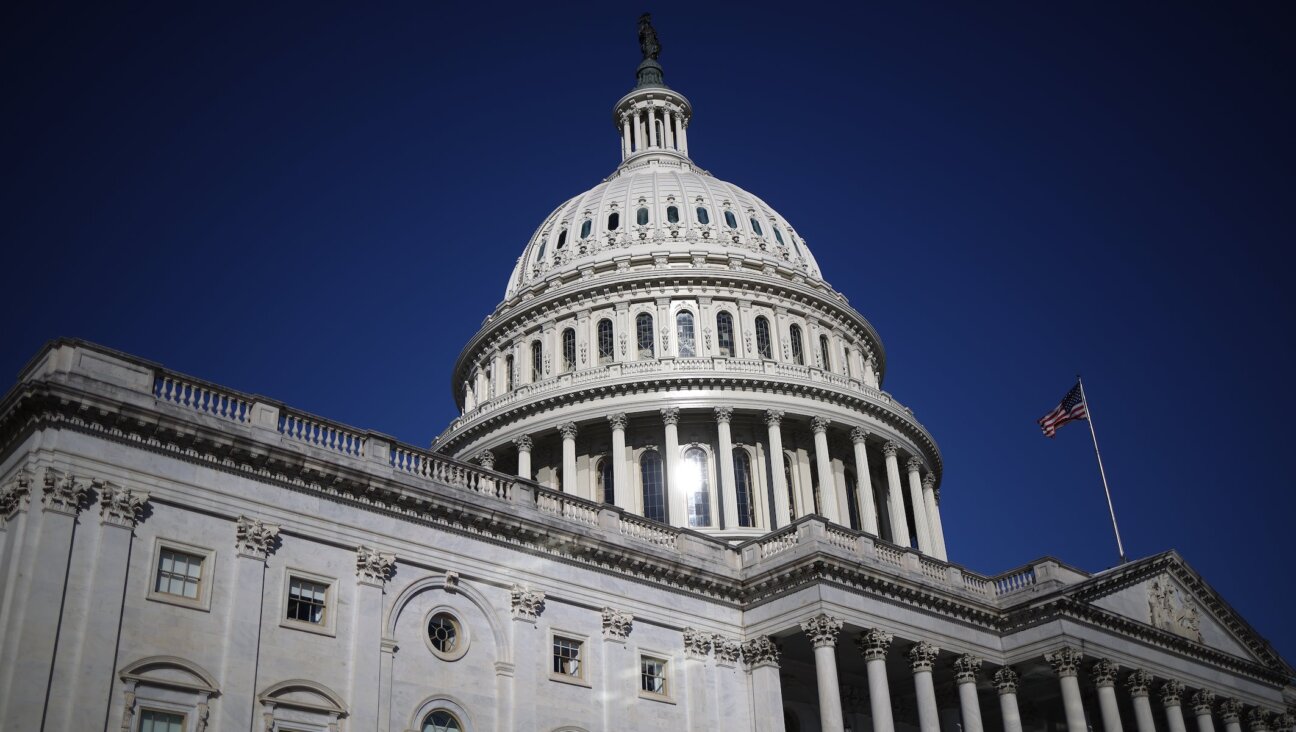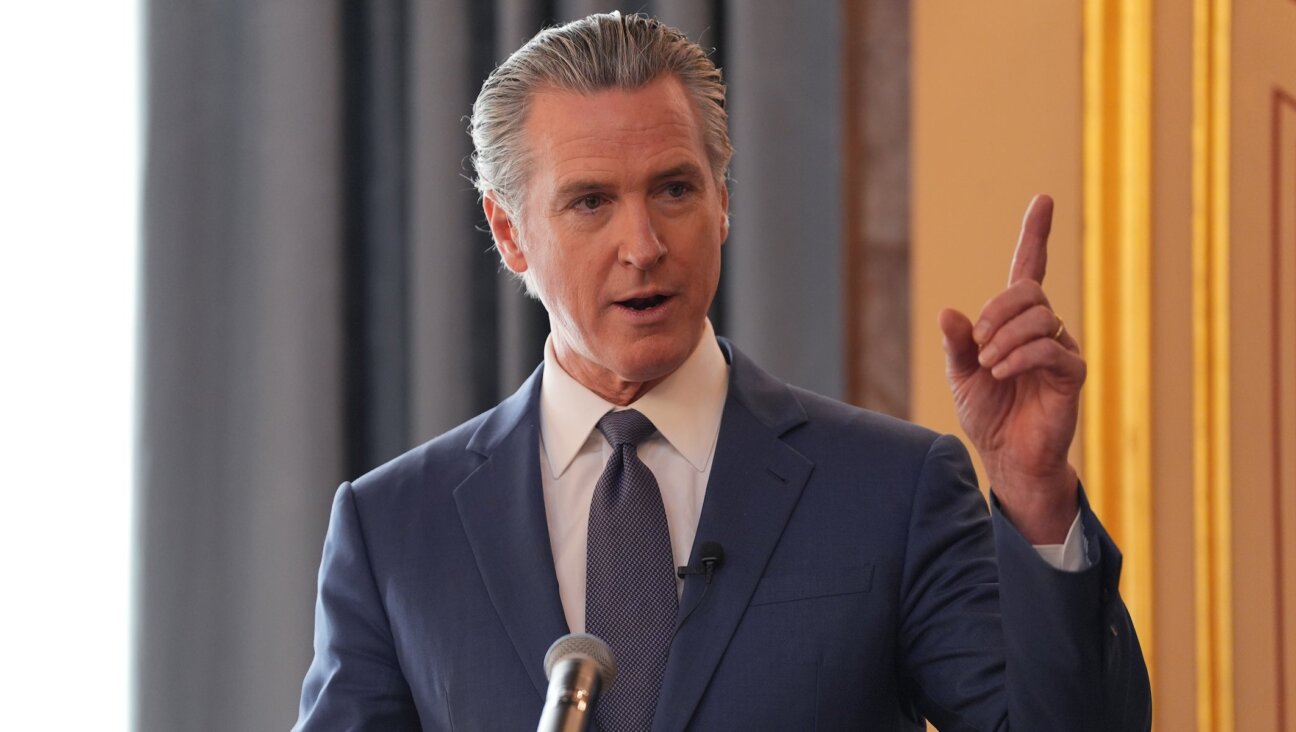This new social justice theory is making academia dangerous for Jews

Aerial view of Stanford University in Stanford California By iStock
This June, two Jewish mental health providers at Stanford University alleged they were the targets of anti-Jewish harassment. Ron Albucher, a prominent psychiatrist and Sheila Levin, a clinical social worker, have filed a legal complaint with the Equal Employment Opportunity Commission on June 15. The complaint alleges that Stanford University’s Counseling & Psychological Services’ Diversity, Equity and Inclusion program became a hostile environment for Jews. The treatment they experienced, the complaint holds, violates Title VII of the Civil Rights Act of 1964.
The complaint is a case study in the dangers of Critical Social Justice, a theoretical approach that asserts oppression is embedded in society’s systems and structures and that only the victims of oppression have the lived experience, insight and moral authority to define such oppression for the rest of society.
CSJ can be particularly hard to decipher because it cloaks its core ideology in the language of justice and equity. Who wants — or dares — to oppose such ideals?
But while CSJ purports to highlight existing racism in society, it sets up a false oppressed-oppressor binary that is used by some to portray Jews and other minorities as oppressors. The ideology thus becomes a source of oppression itself.
Antisemitic incidents within academia, I’m sorry to say, will keep occurring as long as the ideology that enables them goes unchecked.
According to the complaint, the CAPS DEI program has promulgated invidious notions of Jewish power, conspiracy and control, relying on “racial and ethnic stereotyping and scapegoating by describing all Jews as white or white-passing and therefore complicit in anti-Black racism.”
“Everybody started attacking [Albucher],” Levin recalled of a DEI meeting when Albucher had refused to read the assigned book, “White Fragility.”
CSJ framework makes it possible to see Jews only as perpetrators of racism and prejudice, never its victims.
This is precisely what happened in May 2020, after a virtual town hall at Stanford was “zoom bombed” with racist messages, swastikas and uses of the n-word. The DEI committee raised the incident for discussion, the complaint alleges, but decided not to address the antisemitism so as not to take the spotlight off of anti-Black racism.
Instead of using the incident to speak about the dangers of antisemitism, participants “accused Dr. Albucher of derailing the program’s focus on anti-Black racism merely by raising the issue of antisemitism,” the complaint alleged. Two months later, according to the complaint, when swastikas were discovered inside a Stanford Church, the DEI program once again took a pass at any discussion of how this symbolism affects Jews.
“I did not feel in the least bit safe saying anything at all,” Levin said. “I feel terrible about it, but I actually watched as staff just tore Ron up just for asking why they omitted swastikas from the discussion…They were talking about his privilege and that he was basically wanting to take up time talking about antisemitism, rather than focusing on anti-Black racism, which really wasn’t true.”
The complaint also alleges that Jewish staff members were pressured to join the DEI program’s “whiteness accountability” affinity group, created for “staff who hold privilege via white identity” and “are white identified, may be newly grappling with or realizing their white identity, or identify as or are perceived as white presenting or passing (aka seen as white by others even though you hold other identities).” No affinity group was created for Jewish staff members, despite their repeated requests for such a group.
The Stanford DEI program is not an outlier. There are countless other cases of DEI programs that involve coercive measures such as white affinity groups and white privilege checklists.
Why is this happening?
These incidents are primarily a byproduct of the rapid spread of Critical Social Justice ideology in our institutions. This ideology places demands on its adherents that make it nearly impossible to take an opposing stance without being labelled as racist. The result is that when legitimate cases arise that do not fit the model, they are overlooked or warped in a way that causes even further damage to the victims.
CSJ holds that only those who experience certain CSJ-approved categories of discrimination have insight and “lived experience” that uniquely allows them to render the only acceptable definitions of racism and bigotry for the rest of society. If you don’t fit into one of these approved identity categories and feel you’ve experienced discrimination, you’re simply out of luck.
Under this conception, only members of particular oppressed groups get to dictate the nature of oppression — even its ability to be experienced by others.
We should, of course, listen to all minorities when they share their experiences, because they do have insights others need to hear. But the overwhelming message from CSJ activists is that people must defer to any demands made in the name of those experiences. Those who disagree, don’t fall perfectly in line or just want to examine the issue further risk being labeled “privileged” or racist.
Once people buy into the idea that they have to acquiesce to someone else’s particular outlook, they feel obliged to stay the course, no matter how outrageous the claim. The predictable result is that well-meaning people are acceding to an ever cascading list of radical demands that in some cases may have crossed the line into illegality.
When the outgrowth of such demands produces hostility against Jews, those who defer to the ideological demands are left bewildered and tongue-tied because they thought they were fighting on the side of justice. How could something so seemingly righteous spark antisemitism?
What did the well-meaning people, including many Jewish leaders, think would happen when they suspended their critical faculties and signed on the dotted line of deference?
Did they consider that this simplistic power analysis doesn’t allow for the complexity of groups that both wield power and are victimized, such as Jews and Asians?
Did they consider that the assertion that Jews are complicit in white supremacy would be weaponized and come back to haunt American Jews?
Did they consider that the very rigid understanding of white privilege and the hierarchy of privileges would be used by antisemites to invent “Jewish privilege?”
Did they consider the new Ibrahim X. Kendi definition of equity, which holds that it is permissible to discriminate in the name of overcoming structural inequities , would single out Jews for being over-represented in many fields?
Did they consider that “white accountability” groups would be problematic for many Jews (not to mention many non-Jews) who don’t view themselves as white or identify along racial lines?
Countering these incidents of antisemitism is like playing a game of whack-a-mole and Jews are inherently susceptible. Unless the CSJ ideology itself is held in check and replaced by better models, there will be more and more antisemitic incidents and antisemitic attitudes will spread.
Now would be a good time to rethink what we mean by racial justice. What we have now leaves little room for Jews, or anyone else, to make the world a better place.
David Bernstein is the Founder of the Jewish Institute for Liberal Values. Follow him on Twitter @DavidLBernstein.
















